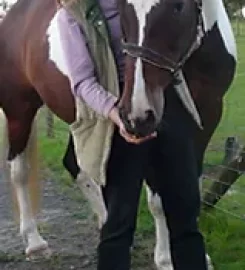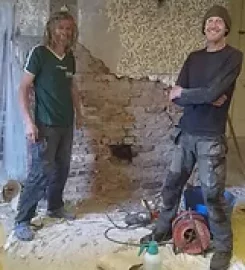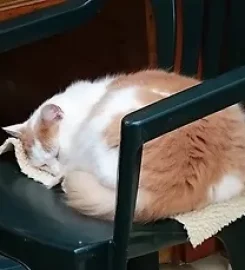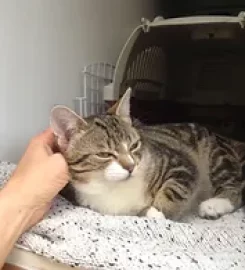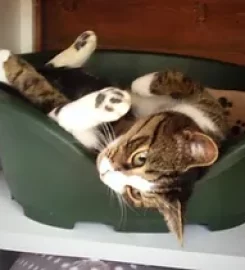Longthwaite Cattery
Peaceful Boarding Cattery
The cattery chalets have raised bedrooms with comfortable bedding and a heat
amp, and covered outside runs in the fresh air overlooking the gardens. Cats
can move freely between their bedroom and run, and opaque screens between
the runs keeps each cat safe from intimidating looks from neighbours. The
gardens attract birds and butterflies to ensure the cats have plenty to watch
– including the odd chicken for dreams of big-game hunting!
Our rates are (increasing from 1st September 2023):
£10 per night for a single cat with owner supplied food (£11 from Sept 23)
£14 per night for two cats sharing a double chalet with owner supplied food (£16)
£15.50 per night for two cats sharing a two-bed suite, owner supplied food (£17.50)
We have one small individual run at £9.50 per night (£10.50)
Addition of £1.50 per night per cat when the cattery supplies the cat’s food.
Clinical Animal Behaviour
A behaviour consult involves a 3-4 hrs working with you and your pet in your home environment, with pre-consult data gathering by questionnaire, video, and input from your vet as appropriate. The consult involves the time and expertise needed to understand why the pet is behaving in the way it is; and then developing a practical behaviour modification plan to suit your particular circumstances and the specific needs of your pet.
Telephone follow-ups are used to coach you through making the changes necessary to resolve the behaviour and problem-solve any hitches along the way.
There is one-off fee of between £240 – £280 depending upon travel time/distance, with consults in the afternoons of Thursdays, Fridays & Saturdays.
Veterinary referral is needed to consider all medical concerns that may be causing or affecting the problem behaviour. You can ask your vet to refer your case to me directly using the veterinary referral form here. Or, with your permission, I can liaise with your vet on your behalf.
DIY Livery Stables
Our small DIY livery yard is situated behind the house and is surrounded by paddocks of mixed meadow grass with mature trees for shade and hedges for protection from the wind. We designed the stables to provide for the behavioural needs of the horses, as well as their physical comfort and the convenience of their owners. All the paddocks have mains-supplied water troughs and permanent electric rope fencing or hedges. They are designed so owners can collect their horses from their paddocks as close to the stables as possible.
Loose boxes each have an integrated tack room for the horse’s equipment and feed, including a full height lockable cupboard for secure storage of tack and equipment. The boxes are timber lined to chest height and allow full visual communication between neighbours. Three boxes allow full tactile contact over the dividing walls, and we use these for horses that get along well and appreciate the opportunity to groom each other.
Paddocks are sized for three horses and we turn out according to the best mix of horse compatibility and owner needs. All fencing is permanent, and the tubo-rope electric fencing is electrified from mains supply. Paddocks are harrowed and rolled in Spring, and we re-cycle the composted midden onto the fields to retain soil health without using artificial fertilizers.
Stable yard facilities include electric lighting and running water, and we have a dedicated bay with an electric socket for clipping, any veterinary procedures, and to keep the farrier dry in wet weather! It also houses the kettle and functions as a warm spot for coffee on a cold winter’s day.
Riding areas include a lunging corral with a wood chip surface, which doubles as a handy spot to contain a horse that needs to stay close to the yard. A grass arena provides a menage, and we have a variety of styles of jumps, and an “equigym” for in-hand work to supple and strengthen and build co-ordination.
Our rates are £95 per calendar month for each stable with paddock grazing (approximately one acre per horse). Hay and bedding are sourced separately. We do not provide any services for clients, but we are a small friendly yard and everyone mucks in to help each other out and to keep the place tidy.
About Us
Dr Emma Creighton
A native of Keswick, Emma returned to Cumbria in 2011 after a university career lecturing and researching in animal behaviour and welfare. After writing and delivering an MSc course that trained clinical animal behaviourists and animal welfare assessors, she now works from home and gets her hands thoroughly dirty with the cats, horses, sheep and chickens at Longthwaite, and helps her human clients understand and resolve their animal’s problem behaviour.
Emma has applied her knowledge and experience of the captive animal sector to design the animal (and human) facilities at Longthwaite, aiming to meet the species-specific needs of the animals and to create harmonious relationships with their human carers.
Her past DIY and small business experiences have been developed to become the estate management skills needed to run and maintain a small diversified farm. And it sometimes feels like rotating through all the roles in Downton Abbey on a daily basis!
Emma is also involved in animal charity work and, with Major David Montgomery, founded the Animal Behaviour & Training Council (ABTC) that has co-ordinated the animal training and behaviour therapy industry into developing standards of knowledge and practice for practitioners who work with people and their pets.
Barbara Hudson
Barbara keeps everybody – human and animal – in line with humour and a sensitivity borne from two decades of fostering babies for Cumbria County Council.
Bryan and Mike Abbott
Bryan and Mike keep the house and animal facilities in good working order. There hasn’t been anything yet that Bry cannot fix, and Mike keeps everywhere as tidy as he can persuade everybody to be – which is no-where near as polished as he would like it!
FAQs
emma@longthwaitehouse.co.uk


